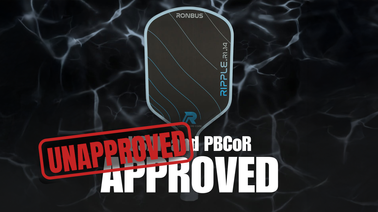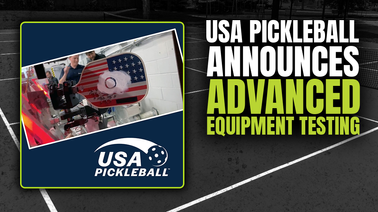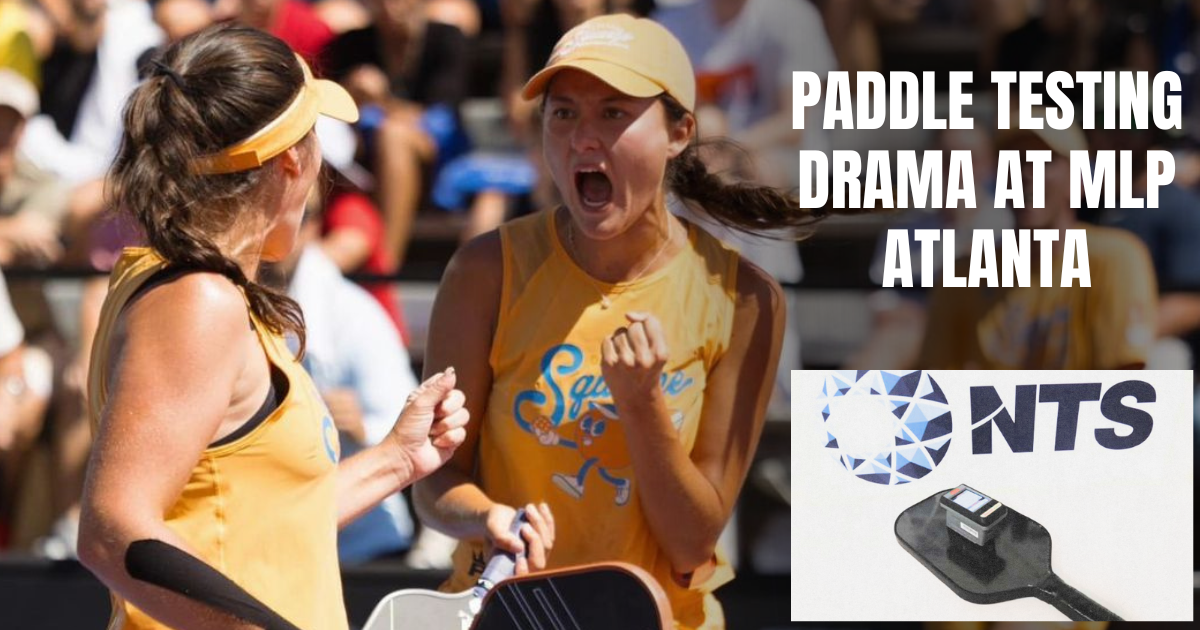
We've heard the rumors that paddles are failing tests at pro pickleball events, and now we have official confirmation:
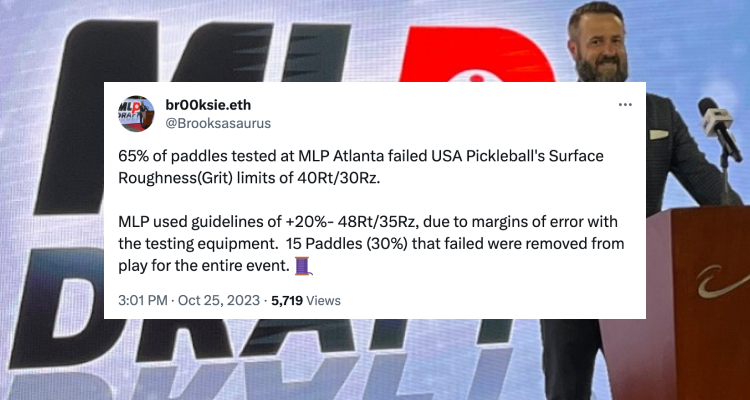
That's direct from Major League Pickleball commissioner Brooks Wiley, who also recently tweeted about paddle deflection issues, summarizing it eloquently:
"The trend is pretty clear. The pro game is getting faster and faster."
But it's not just that pros' arms are getting stronger... although we may make an exception for Ignatowich's absolute ROCKET putaway.
"If you're a pro player losing hands battles to someone you didn't before, you're going to go to your manufacturer for more power – it creates a bit of an arms race," Wiley says.
Because hands battles among the most powerful players typically last only one or two shots before the rally ends, some pros feel the need to play it safe with dink battles, which can draw out the point.
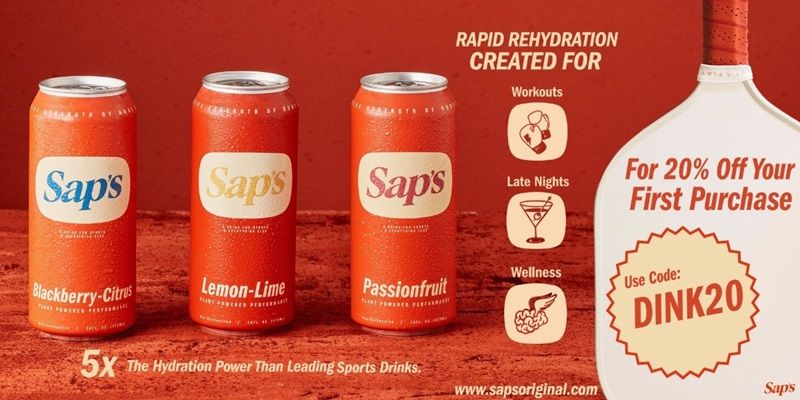
Those overextended dink rallies may make for smart playing, but they don't make for exciting pickleball – a problem as the sport continues to vie for public recognition and viewership.
Then again: Wiley doesn't want the resulting regulations on paddle "hotness" to unjustly punish pros, either.
"Some people would assume the pros are cheating when all they are doing is receiving a pack of paddles from a manufacturer."
Surface roughness (grit)
USA Pickleball's rulings on surface roughness include the following guidelines:
- The paddle hitting surface shall not contain holes, indentations, rough texturing, tape, or any objects or features that allow a player to impart additional spin on the ball
- Paddle roughness is determined using a Starrett SR 100 Surface Roughness Tester. The allowable limits for roughness shall be no greater than 30 micrometers (µm) on the Rz reading (average maximum height, peak to valley), and no greater than 40 micrometers on the Rt reading (maximum height, peak to valley).
MLP used guidelines of +20%- 48Rt/35Rz, due to margins of error with the testing equipment
Even still, many paddles failed the limit test. Clearly, the manufacturers see value in pumping up a paddle's spin capabilities, even for the uppermost levels of play and performance – not just power.
Deflection
The paddle deflection issue has come up before, but in the last 6 months, it has reached critical mass.
Players have been disqualified; new testing processes have been adopted.
Read more here. But to summarize: Deflection is how quickly the ball departs from the paddle face upon contact. AKA "pop."
As Wiley explained in a recent series of tweets, the longer a ball dwells on the paddle, the more speed it has when it rebounds (similar to how a golf ball compresses against a driver).
From June to September of 2023, it appears paddles became 'hotter' as more of them are pushing the limit of 50 pounds of Average Deflection Force.
More paddles in play from most manufacturers scored higher than 50 in subsequent MLP events, with 6 hot paddles in Daytona, 9 in San Clemente, and most recently, 24 in Atlanta.
Takeaways
More dynamic testing will begin at the upcoming MLP Dallas event. These tests use cannons firing pickleballs at paddles to determine deflection and dwell time.
From this research, the MLP, PPA, and USA Pickleball will work with paddle manufacturers to create equipment standards which are clear, transparent, and feature repeatable testing, Wiley says.
It's a good thing, too. Because if this is happening at the pro level, imagine the impacts of the paddle power arms race on local lower-level tournaments. It could result in lots of 3.5s walking away with 4.0 medals.
Listen: PicklePod Ep 69: Collin Johns: Cheating vs Innovation, Tour Wars, Net Cords
More importantly, though, this is bad for the pro game's optics. If the second-highest level players are afraid to let easy gets rip against the slightly higher level ones, we're going to be watching more boring dink rallies than ever.
Pros sound off:



